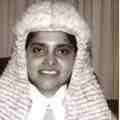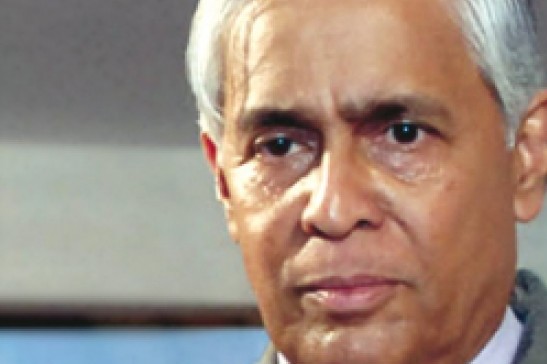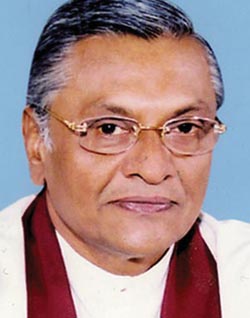‘Trial of the Chief Justice’ by a Kangaroo Court
Parliamentary Select Committee
A senior government source is reported to have stated on November 8, 2012 that “The PSC will
work out the modalities for the sittings. It will only allow a single counsel to accompany the Chief Justice and would allow witnesses or documents to be called only with the consent of a majority of members,” and also that “the government had no intention of allowing representatives of the International Bar Association, International Judges’ Association and Commonwealth Bar Association and even the media to observe the proceedings as that would affect the Sovereignty, the authority and the Independence of the Sri LankanParliament if they were allowed to monitor or report or comment on the PSC.”
If this is not a Kangaroo (with apologies to the Kangaroos) Court. I don’t know, what is.
Questionable standing as legal luminaries
Certain legalistic individuals, prostituting their questionable standing as legal luminaries, have even advocated that these Kangaroos be clothed with Judicial powers to validate pronouncements based on their “findings”. The purported “findings” may very well be clearly contrary to the weight of evidence available. The modus operandi seems to be to shut out any information regarding such evidence until the foul deed of impeachment is concluded.
Sovereignty interpretation
This government source, the Speaker, and the PSC appointed by him, must all realise that the
only valid interpretation of “Sovereignty” as per the 1978 Constitution, is that given by the 9-judge bench of the Supreme Court headed by Hon. Neville Samarakoon CJ viz.
One and indivisible
“Sovereignty of the Sri Lankan People under the 1978 Constitution is one and indivisible. It remains with the People. It is only the exercise of certain Legislative, Executive and Judicial powers of the Sovereign People that are delegated to the Parliament, the Executive and the Judiciary. Fundamental Rights and Franchise remain with the People and the Supreme Court has been constituted the guardian of such rights.”
There certainly cannot be any such thing as “Sovereignty” of Parliament. The Authority and Independence of Parliament is limited to what is set out in the Constitution and therefore the extent of such authority and independence are subject to the interpretation of the Supreme Court.
Motley group of parliamentarians
The impeachment of a President cannot be proceeded with unless the Supreme Court, after due
inquiry, finds that the President has been guilty of any of the allegations contained in the resolution for his impeachment. Can the impeachment of a Chief Justice be based on a finding of a motley group of Parliamentarians with no judicial authority ? Clearly not ! Any such finding is clearly subject to appropriate Judicial Review.
Truth of a matter does not depend on how many believe it
It is self-evident that “the truth of a matter does not depend on how many believe it”. The truth of the 14 allegations (several of which seem to be clearly unfounded) certainly cannot be based on how many ‘vote’ for it. Cognizance must be taken of the fact that several Parliamentarians who publicly professed to oppose the 18th Amendment did, however, for reasons best known to them, vote for it.
Sarath Silva and his rationale
The submission made by ex- Chief Justice Sarath N. Silva that the impeachment exercise is “purely of a disciplinary nature relating to a contract of employment between the Judge and the Government of Sri Lanka” and that “the publication of the charges and the response moves the issue into the realm of a public trial which will only harm the Judiciary” is, to say the least preposterous!
Charges against former CJ Sarath Silva were made public
The charges against him were, at that time, all in the public domain and any attempt by him to answer them would have been tantamount to digging his own grave. Without merely “sitting and staring at the Order Book”, he took action and was saved from the ignominy of impeachment by the timely proroguing and subsequent dissolution of Parliament, by his benefactor President Kumaratunga, to whom he had administered the oath of office, as President in 1999 and once again “secretly” in 2000, for reasons best known to him.
Charges against Shirani
It was only because the charges contained in the impeachment motion against the present CJ were made public, that the Chief Justice has been able to refute them as convincingly as she has done. On the other hand, if they were not publicised, the PSC could have gone through the motions secretly and caused irrevocable harm to the Judiciary.
No judge would dare
In that event no judge would in future dare to act independently to uphold the rights of the Sovereign People, even in the face of patently unlawful violations of the Fundamental Rights of the People.
Sarath Silva’s motives
Perhaps this ex-CJ SSarsath Silva is not averse to this impeachment (which will cause untold damage to the Judiciary) for the reason that his conduct at the meeting of the Judicial Services Commission (JSC) on 30th December 2004, and the manner in which he conducted the affairs of the JSC in the year 2005 (with the active support of then Secretary of the JSC, Chandra Jayatilaka who was recently appointed by the President to the Court of Appeal) which resulted in the “Constructive Termination” of the tenure of Shirani Bandaranayake J and Weerasuriya J as members of the J.S.C. in January 2006, will thereby be permanently swept under the carpet.
Trial must be conducted transparently
This trial must necessarily be conducted in as transparent a manner as possible, to safeguard the independence of the Judiciary. It may be necessary for Civil Society to take a stand to ensure this. The arbitrary and indiscriminate use of the law enforcement agencies to suppress any dissent may require Civil Society to resort even to peaceful Civil Disobedience. Failure to do so may seal the fate of Democracy and pave the way for Ruthless Dictatorship.
Elmore Perera, Attorney-at-Law
Founder, Citizen’s Movement for Good Governance
Past President, Organisation of Professional Associations



